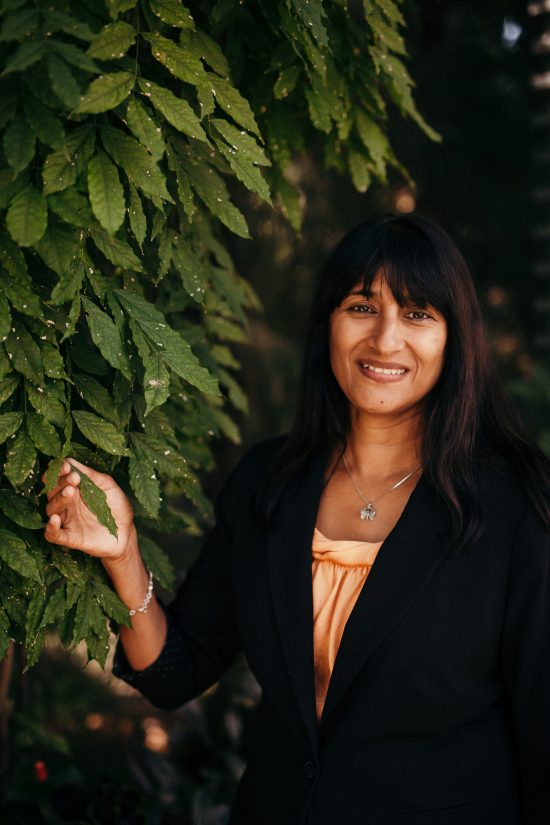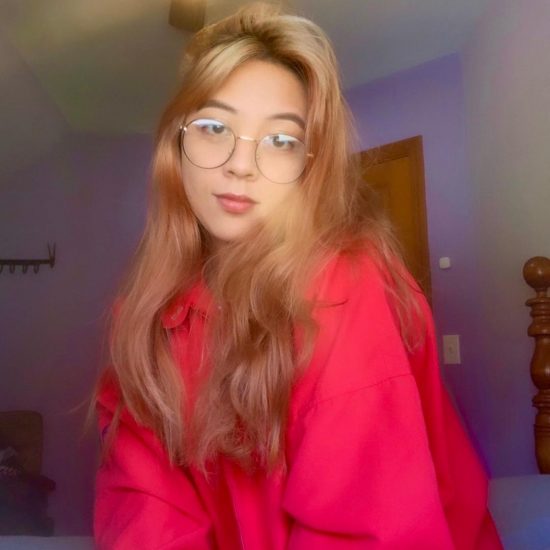
Today, we’re learning more about newly appointed IWCA Executive Director Dr. Sarada Krishnan and her journey through the coffee world.
BY EMILY JOY MENESES
SPECIAL TO BARISTA MAGAZINE ONLINE

On May 27, the International Women’s Coffee Alliance (IWCA) announced Dr. Sarada Krishnan (she/her) as their new executive director—a natural fit given her educational background in horticulture, her cultural and familial ties to coffee, and her passion for developing programs to help tackle climate change and empower women coffee producers around the world. We’d like to congratulate Dr. Krishnan on her new role, and today we’re learning more about her journey through the coffee world and what she’ll be focusing on as she continues to grow with the IWCA.
Emily: Hello, Dr. Krishnan! First of all, congratulations on being named IWCA’s new executive director. To start, can you tell us a little bit about yourself—how you got started in the coffee world, and why you’re passionate about coffee (specifically empowering women in the coffee community)?
Dr. Krishnan: Thank you so much! I am really overwhelmed by the warm welcome I have received from the coffee industry around the world.
You could say coffee is in my genes. Growing up in India, my family has owned coffee farms, and many members of my family still grow coffee. It is part of my family heritage. I have been drinking coffee since the age of 7 or 8. As part of my undergraduate degree in Horticulture at Tamil Nadu Agricultural University in India, we had a full course in coffee cultivation where we visited coffee farms as part of our field trip. I still have my notebook from that course.
When I pursued my doctoral degree, I wanted to work in Madagascar due to the unique biodiversity of that island country. While researching what plant species to work on, I found out that Madagascar has a high diversity of endemic coffee species (59 species!), many of them facing threats of extinction. Hence, I decided to work on four different coffee species to understand the genetic diversity of the plants conserved in the local genebank and compare them with populations still remaining in the natural forests, based on which I made conservation recommendations. My passion for coffee led me to buy coffee farms in Jamaica.
What are the main challenges you believe women in the coffee community face? And what are the most pertinent solutions? I love how you said that empowering women will lead to positive change (on a global scale)—can you elaborate a bit on that idea?
In almost all parts of the world, women disproportionately perform more work than their male counterparts. In addition to working outside of the home, they also carry the burden of nurturing their families. This is markedly pronounced in rural farming communities, including coffee communities. If we can empower women to increase their earning potential by providing them with the skills needed to improve cultivation practices and financial literacy, they will gain more confidence and garner more respect in the community. If the woman thrives, her family will also thrive.
How do you feel we, as baristas and coffee consumers, can be more conscious and proactive when wishing to empower women in the international coffee community?
Even though there are common themes of challenges across coffee-growing regions, no one size fits all. Any program developed to empower women needs to focus on the country’s context. That is exactly why having IWCA chapters in each country, operated by the local women, is so important—since these women know what their day-to-day challenges are.
IWCA Global is the facilitator that helps develop programs catering to the country context through partnerships that help us implement these programs. As we start strengthening our programs and partnerships, we anticipate more coffee in the market grown by women farmers from IWCA chapter countries, identifiable by the IWCA logo on the packaging. This will lead to more visibility in the market, providing choices for baristas and consumers.
Are there any particular projects within IWCA that you’re excited to work on? What do you hope to focus on as executive director?
We announced a new exciting partnership at our sixth convention on June 17. I am very excited about this partnership, which will provide opportunities for our women producers through both training and market access, leading to higher income generation while also providing unique coffees for the consumers. As the new executive director, my short-term goal is to cultivate old and new relationships during the first few months, and in the longer term start exploring new programs and partnerships to achieve empowerment through our three main focus areas: leadership development, strategic partnerships, and amplified market visibility. Long-term organizational sustainability will be another area I will be focusing on.
Anything else you’d like to share about yourself and your work?
One of the main challenges the coffee industry is and will be facing is the impacts of climate change. My hope is to use my coffee science background to guide me in developing climate-resilient programs that will empower women in tackling the challenges of climate change. For this, we will have to look at the intersection of biological and social sciences to come up with lasting solutions.

ABOUT THE AUTHOR
Based in Los Angeles, Emily Joy Meneses (she/her) is a writer and musician passionate about culture and collective care. You can regularly find her at Echo Park Lake, drinking a cortado and journaling about astrology, art, Animal Crossing, and her dreams. Explore her poetry, short stories, and soundscapes on her website.

